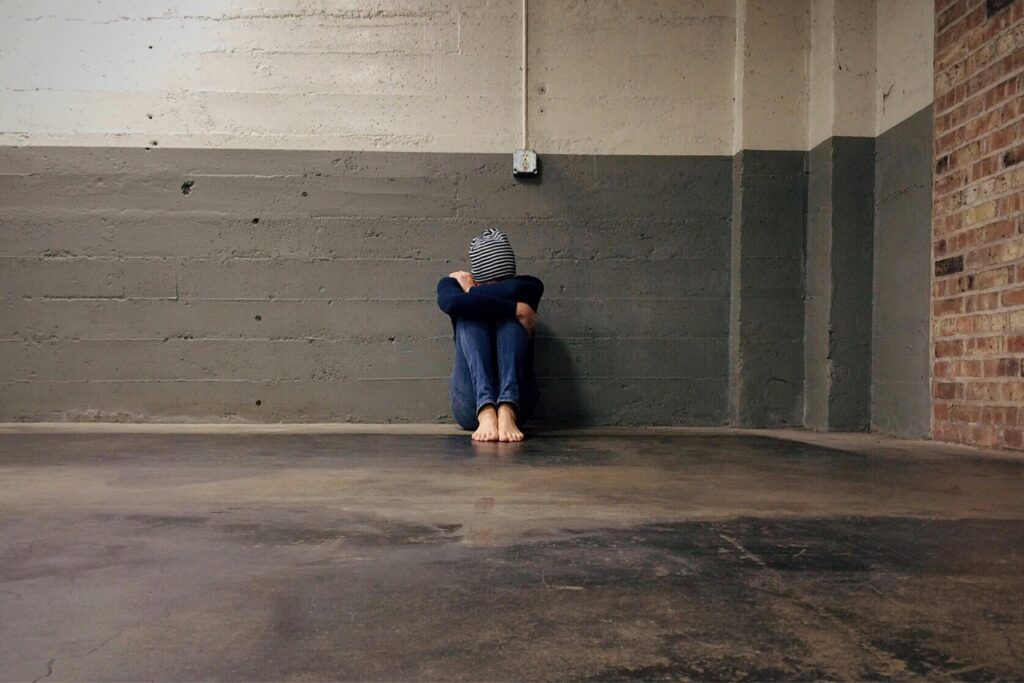Published on 26th July 2025
Authored By: B. Akshaya
Christ [Deemed to be] University, Delhi NCR
Abstract
Genocide has been a topic of a long standing debate in states like Germany and Australia. This article delves into recurrent events of genocide across Australia, how it has impacted the evolution of the modern day societies. This topic has further sparked debates across the State followed by recent remarks made by Senator Lydia Thorpe, who is of Aborginal descent, she accused His Majesty King Charles of robbing the Australians of their wealth, culture, committing genocide, of killing their people, their babies. She also made a request of having a treaty with the state, claiming back their land. This article evaluates the various aspects of the legal frameowkr within the state, aims to prove how international law also plays a significant role in influencing domestic laws.
Introduction
Genocide remains a subject on ongoing legal scrutiny having severe implications for legal systems across the world. In the case of Nulyariamma v. Thompson, Justice Crispin noted-
“It is undeniable that the British colonisation had gravely adverse consequences for the Aboriginal peoples of Australia. They had shared unchallenged dominion over the Australian continent for thousands of years. Then within the space of a few generations the bulk of their land was wrested from them by invaders from over the seas.”
It is quite evident to say that the exploitation and genocide of the Aborgines in Australia was executed by a carefully crafted plan drafted by the Britishers who aimed to dismantle the Nations people from their land, roots, their culture. This was done systematically systematically dismantling their group, displacing its members from their parents right from infancy. The term genocide refers to killings of persons belonging to a particular group, it was defined in 1944. This term was coined by Polish jurist- Raphael Lemkin as act aiming to destroy a nation or an ethnic group. He was horrified by the acts carried out by the Nazis to kill thousands of Jews.
Historical Context of Genocide
- The earliest of occurrence of genocide across a state was in Nazi Germany, in the [year]. The country was baffled and broken followed by a brutal defeat in WWI, this was when the new government ruled by the Nazi party brought in racial theories to segregate the population and carried out experiments to exterminate the Jews. This led to the prevalence of Holocaust, a term used to describe a phenomenon during which large number of people were killed.
- Genocide was also widely practiced in the State of Australia, where genocide was quite a frequent phenomenon, which was carried out by the Britishers who went on to colonize the State. The government introduced oppressive policies to dismantle the Aborginal community, by killing the members, dispatching them by separating them at birth which led to the creation of a broken community with no hope for another future. The infants were snatched from their mothers at birth and were often sent to religious missioneries with a attempt to transform them into “civilized” beings , by encouraging them to learn ettiquettes of the white community and preventing from speaking their native language and practicing their culture. This new community later came to be known as the stolen generations, which implied that they has no knowledge of their roots, were detached from their family and community, had no contact which prevented the parents from passing on information to their kids. This led to rapid reduction of their population with only 10% of the ones remaining to be the Aborgines. Law also played a crucial role in this heinous procedure which left a generation of pain, suffering of being separated from their family at birth. Laws such as the Victorian Aborginal Protection Act 1869, which gave immense powers to the government to control and regulate the life of the Aborgines.
Case laws
- Nulyariamma v Thompson
The case was filed by multiple parties namely- Wadjularbinna Nuliyarimma & Others, demanding arrest warrants against John Howard [Prime Minister], Tim Fischer [Deputy Prime Minister], Brian Harridine [Senator], Pauline Hanson [Member of House of Representatives]. It evolved around a serious question of law- does crime of genocide constitute as an offence with the legal framework of Australia. This case determined wider scope of international law within Australia, it also recognized that the laws enforced by the Australian government, had somewhere gravely affected the lives of the Aborgines, displaced them from their homes, separated families. The judgment delivered was two fold on one hand the majoritarian view of two of the judges was that the crime of genocide did not constitute as an offence under the domestic legal framework until it was enacted by the legislation, while the minority opinion was that the defendant could be held liable under the international law as it was adopted into the asutralian law through- common law approach, as he held that international law could be adopted into the domestic legal framework if it was consistent with the domestic law.
- Mabo v. Queensland
The case was filed by multiple parties namely- Sam Passi, David Passi & others , demanding ownership rights of their land. This was one of the earliest of cases which went on to challenge the legislation. It challenged the newly enacted law- Queensland Coast Islands Declaratory Act, this law prevented the natives from ownership and enjoyment of their property. Another significant aspect of this case evolved around the native title, the court went on to determine whether the native had a title, claim to their land and if the land would be taken away would they eligible for a compensation. The court held that the Queensland Coast Islands Declaratory Act was invalid as it deprived the Meriam people of their rights , furthermore the Court recognised the rights of the natives pertaining to their residence, it observed that they natives enjoyed rights to some extent – considering the fact they lived in the Meriam Islands for a prolonged period, consistently in the same area for decades in spite of movement of immigrants from in and out their areas. The Court therefore held that the State can only exercise their rights subject to rights enjoyed by the natives- in this case the Meriam people.
Genocide under International Law
The term genocide was defined by UN Convention on Prevention and Punishment of the crime of Genocide and under Art 6 of the International Court of Justice
Refers to any act performed with the intent to destroy in part, or in whole, a national, ethnical, racial or religious group followed by the below mentioned conditions:
- Killing the members of a group
- Causing serious bodily or mental harm to members of the group;
- Deliberately inflicting on the group conditions of life calculated to bring about its physical destruction in whole or in part;
- Imposing measures intended to prevent births within the group
- Forcibly transferring children of the group to another group.
Art III of UN Convention on Genocide states the acts stated below are punishable under law
- Genocide
- Any act conspiring to commit genocide
- Public or direct incitement to commit genocide
- Attempting to commit genocide
It explicitly states that ‘genocide’ is a punishable offense under the International Law. The UN Convention on Prevention and Protection against Genocide is regarded as a customary international law, binding on all countries irrespective of whether it has been ratified by them or not.
Domestic Legal Framework
- Aborginal Protection Act, 1869
This law was enacted during the rule of Her Majesty The Queen- Victoria. It was one of the most significant laws which defined the scope of the living of the Aborginals in Australia. It gave immense powers to the government to determine every aspect of their life, which includes determining their place of residence, appropriation of funds given by the Parliament for the care of the Aborgines and most importantly it allowed the state to carry out actions for the purpose of nurturing the children borne by the aborgines, taking care of their education and overall wellbeing as stated explicitly in Section 1 of the Act.
- Native Titles Act, 1993
Native Title rights refer to rights enjoyed by the Aborgines which includes, the right to reside in any area, right to carry out acts to sustain their livelihood. The rights came to be recognised by the well known case- Mabo v. Queensland which brought into light what the government had kept behind the drapes for centuries. The case emphasized on the need to recognise and confer rights to the Aborgines, rights that they enjoyed since birth, being a part of a community. This drastically changed the way the Aborgines were perceived in the society. Followed by the judgment, the state enacted the Native Titles Act, 1993. Which had also reduced the rate of genocide against the community.
Conclusion
Horrifying experiences of the past end up shaping a brittle future, the Aborginals in Australia faced atrocities, the government used law as a means to carry out a crime against humanity, a crime which still haunts the present. This article has provided a clear picture of the past and present of Australia. It has also analysed various aspects of the legal framework to help the readers understand as to how in spite of having international laws to prevent humanitarian crimes like genocide, countries have still made laws to sustain them if not to promote. This has displaced thousands of people. Genocide is not just a crime against people, but a crime against humanity, this crime has left an impending mark on various countries like Australia, Germany and Poland. Recently during a reception in Australia, Lydia Thorpe, a senator of the Aborginal origin had taken a bold step to remind the people of their horrid past, demanding for a better future, a treaty with His Majesty King Charles
References
- Richard Claughton, ‘The Crime of Genocide’ [1949] Vol 8 The American Journal of Economics and Sociology < https://www.jstor.org/stable/3483514# >
- Nathan Sentence, ‘Genocide in Australia’ [Australian Museum, 12 July, 2022] < https://australian.museum/learn/first-nations/genocide-in-australia/ >
- Aborginal Protection Act, 1869
- Native Titles Act, 1993




